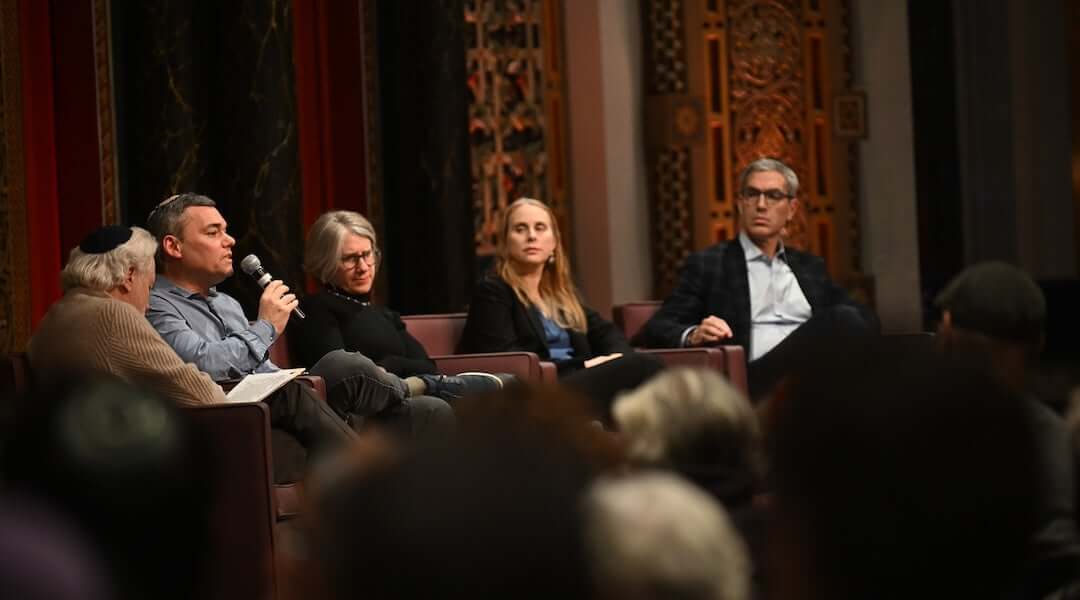Naftali Bennett Floats ‘Semi-Citizenship’ for Jewish Diaspora

Image by getty images
(JTA) Israeli Jerusalem and Diaspora Affairs Minister Naftali Bennett said that Jews outside Israel “should have some sort of say” in the Israeli government’s affairs, and even suggested offering “semi-citizenship” to Diaspora Jews.
The vague concept is related to the so far somewhat undefined $1 billion-plus project that has been picking up steam this week. Dubbed the “Government of Israel and World Jewry Joint Initiative,” it’s an attempt to strengthen Jewish identity and connections between Israel and Jews around the world.
Over the next five years, Israel’s government will be pouring $1.4 billion into the initiative — which is cosponsored by the Jewish Agency for Israel.
The project’s goal is to develop a wide-ranging plan of action on Jewish identity and Israel-Diaspora connections, and it kicked off in November with a meeting of Jewish leaders right before the Jewish Federations of North America’s General Assembly. This week, Jews around the world were invited online to discuss working papers on the initiative’s seven main areas of focus, most of which focused on engaging Jews through formal and informal education, as well as immersive experiences in Israel.
For Bennett, the larger idea is a paradigm shift in how Israel and the Diaspora view each other. Instead of American Jews funding Israel’s existence as an embattled home for refugees, he says the Jewish state’s main mission should be ensuring Jewish continuity.
“What worked in terms of Israel-Jewish Diaspora relations doesn’t work anymore,” he told JTA. “Instead of viewing the Diaspora as a wallet, the new objective is keeping Jews Jewish and connected to Israel even if they don’t make aliyah,” Hebrew for Jewish immigration to Israel.
Bennett, whose parents moved to Israel from America and who has lived in New York, is the chairman of the right-wing, Modern Orthodox-dominated Jewish Home party. The party opposes proposals for the Israeli government to recognize non-Orthodox marriages and conversions, and Bennett views a Palestinian state as anathema — stances that could turn off many American Jews.
But Bennett told JTA that he’s sensitive to the concerns of American Jewish leaders regarding religious pluralism. He stressed, as he did in an interview with JTA last year, that he’s still learning about the American Jewish community. Bennett also serves as Israel’s religious affairs minister.
“We’re not going to solve all the problems, but over the past year my eyes have opened up to the big impact of things in Israel on Jews abroad,” he said. “That’s not to say that Israel is going to align our policies according to what Jews abroad want. It’s our state, but I want Jews abroad to have some sort of say.”
Bennett said that the contours of such arrangements would need to be worked out through the initiative, whose leaders are “still brainstorming.” The initiative is slated to release its recommendations later this year.
But though Israel education and advocacy is a prime focus of the initiative, Bennett said Israel can no longer expect masses of Jews to make aliyah, as they had from the Soviet Union, Ethiopia and the Middle East in previous decades.
“We still have an objective of aliyah, but it’s definitely a watershed point in the sense that we understand that a big proportion of Jews is hoping to stay in the Diaspora,” he said. “We recognize that now we have to shift the objective to keep them Jewish. It’s a big change. Israel has never stepped up to that.”













